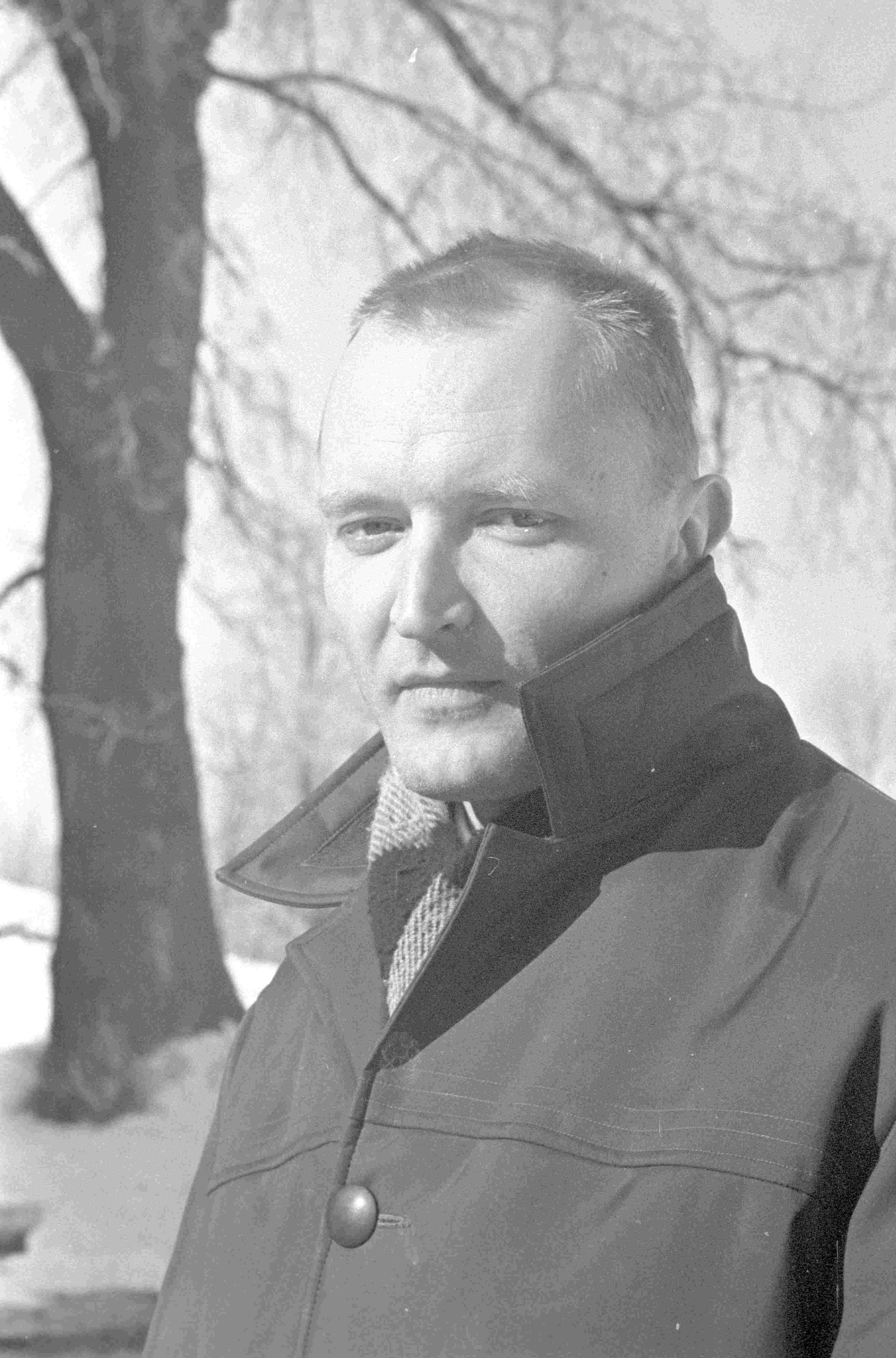
Arvi Siig
Arvi Siig (8. XI 1938 – 23. XI 1999) was a poet and translator.
He was born in Tallinn into the family of an artist and a nurse. After secondary school he attended the Tallinn Pedagogical Institute and studied Russian language by distance learning at the University of Tartu, but his studies remained unfinished. Thereafter he held different literature-related jobs in various journals and other organisations, for instance from 1971 to 1976 in the editorial office of the journal Noorus (‘Youth’), at the Eesti Raamat publishing house from 1976 to 1981, at the Writers’ Union from 1981 to 1989, and as editor-in-chief of the journal Tallinn from 1990 to 1992. He had a specially important role as editor of the journal Noorus, where he developed a youth forum that was liberal for its time. In the nineteen-nineties he carried on as a freelance writer and translator. He was a member of the CPSU from 1976 to 1989, and a deputy of the Supreme Soviet of the ESSR. He travelled a lot in the south of the USSR, and also in Scandinavia, Italy, Cuba, the USA and elsewhere. He died in Tallinn, and is buried in the Nevski cemetery.
He started publishing verses in 1958; his debut collection, Trompetisoolo (‘Trumpet Solo’) appeared in 1962 together with work by Paul-Eerik Rummo, Mats Traat, Enn Vetemaa and Linda Ruud as the first edition of the series of poetry cassettes, marking the arrival of the powerful and reform-minded generation of the sixties. Siig brought an urban theme to his poetry and depicted the life of urban youth; moods of optimism and progress alternated with protest and resistance – in its own way the youth culture that was spreading in Europe was reflected in closed Estonia. In its style his work resembles reportage (especially starting from his collection Reporter värsikaameraga – ‘Reporter with a Verse Camera’, 1966), lively, strained by contrasts, at the same time looking to the future. His poetry inspired later punk poetry.
Siig translated a lot of Russian poetry into Estonian (Y. Yevtushenko, R. Rozhdestvensky, V. Mayakovsky and many others) and was inspired by its spirit. He also translated a selection of 20th-century Czech poetry into Estonian (1986) and prose from English in the nineteen-nineties.
A. Mv. (Translated by C. M.)
Books in Estonian
Poems
Trompetisoolo. Tallinn: Eesti Riiklik Kirjastus, 1962, 52 lk.
Reporter värsikaameraga. Tallinn: Eesti Raamat, 1966, 124 lk.
(P)äikesevõimalused. Tallinn: Eesti Raamat, 1968, 132 lk.
Sinine ateljee. Tallinn: Eesti Raamat, 1969, 55 lk.
Purunenud poeem. Tallinn: Eesti Raamat, 1971, 111 lk.
Vaikuse tähtkuju. Tallinn: Eesti Raamat, 1973, 142 lk.
Murdeajastu. Tallinn: Eesti Raamat, 1976, 176 lk.
Monumendid. Tallinn: Kunst, 1977, 74 lk. [Fotoalbum.]
Kuuldekaugus. Tallinn: Eesti Raamat, 1978, 219 lk.
Epigrammofon. Tallinn: Eesti Raamat, 1980, 208 lk.
Püha argipäev. Tallinn. Eesti Raamat, 1983, 135 lk.
Jah. Lehti aastaist 1962–82. Tallinn: Eesti Raamat, 1985, 271 lk.
Tagasiside. Tallinn: Eesti Raamat, 1987, 141 lk.
Valguse nimi. Tallinn: Kupar, 1993, 99 lk.
Neoon kangialuste kohal. Valikkogu. Koostanud Tony Blackplait (Tõnu Trubetsky). Tallinn: Pegasus, 2007, 550 lk.



